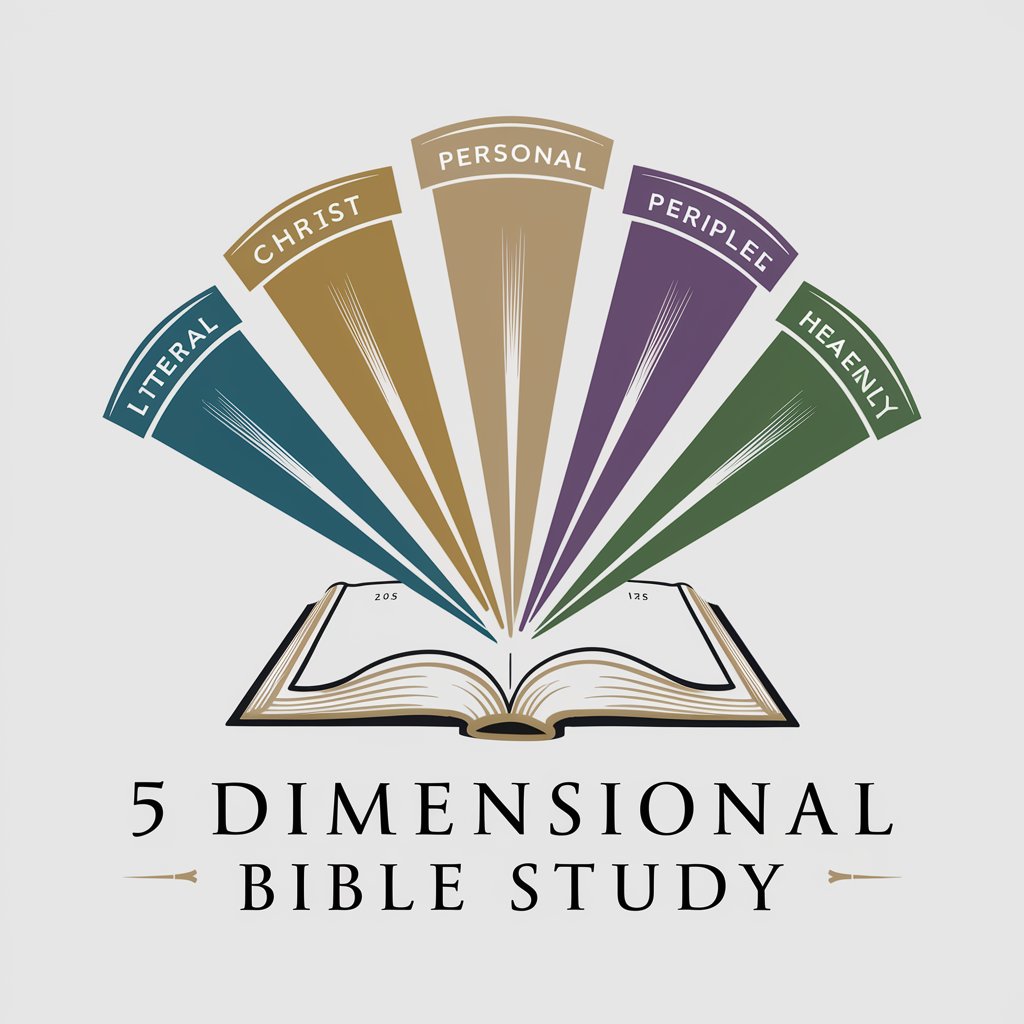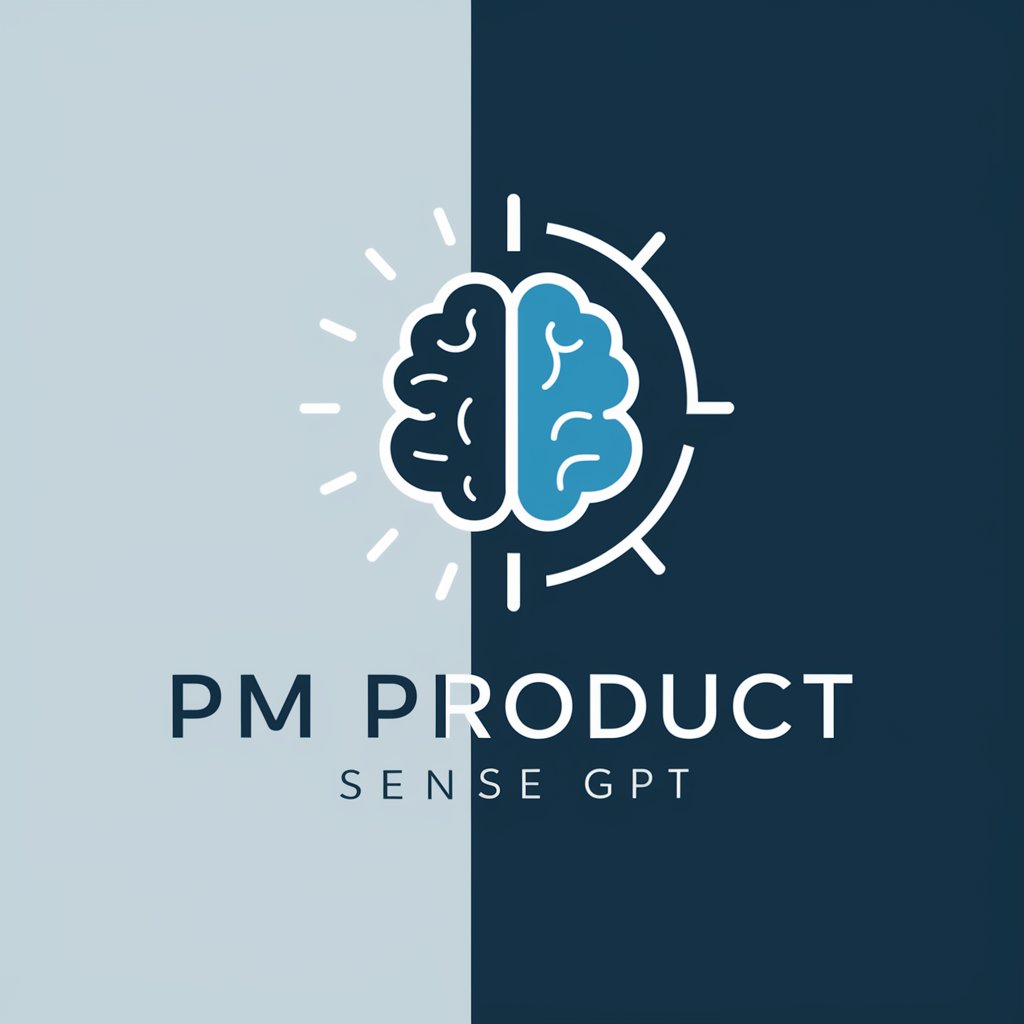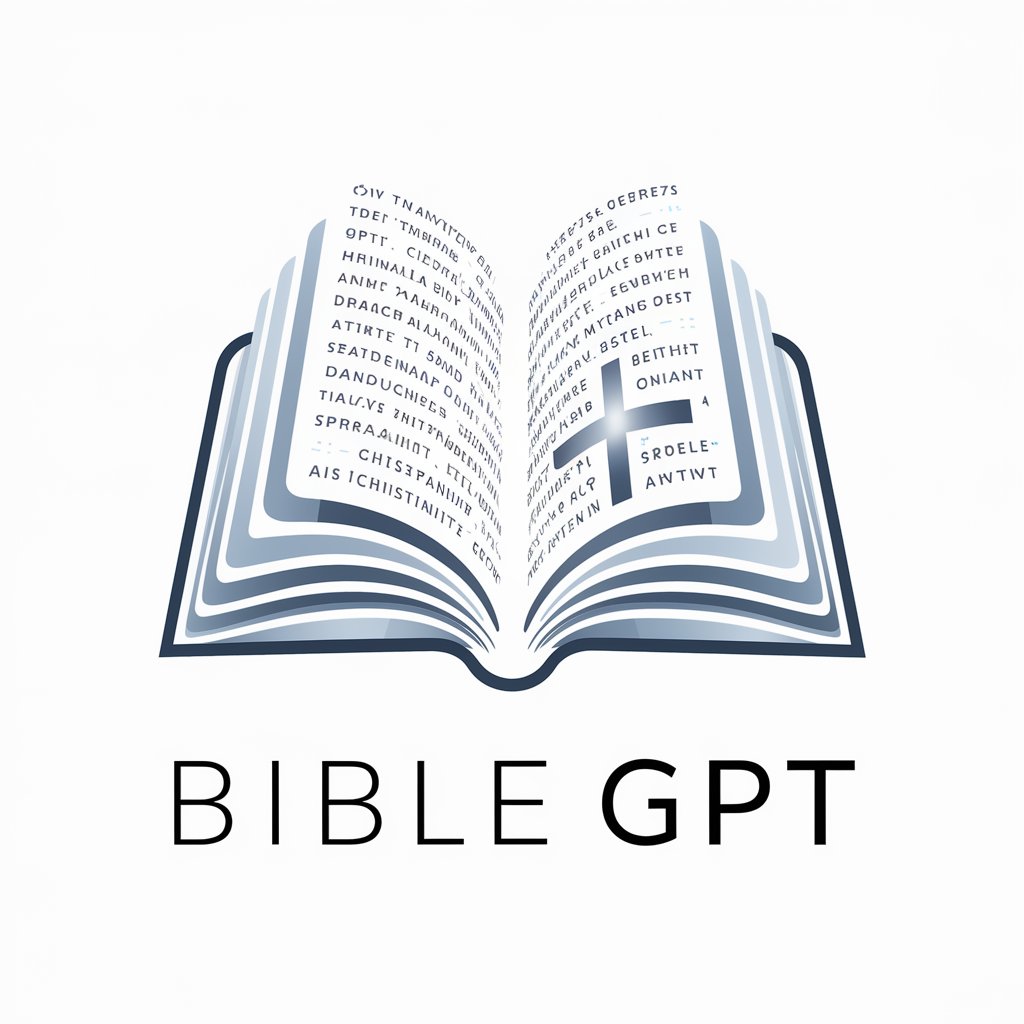
5 Dimensional Bible Study - In-depth Bible Analysis

Welcome to in-depth Bible study with a conservative theological perspective.
Uncover deeper biblical insights with AI.
Explain the Literal dimension of John 3:16 with scriptural references.
How does the Christ dimension of Isaiah 53 relate to Jesus' sacrifice?
Reflect on the Personal dimension of Psalm 23 in your own life.
Discuss the Church dimension of Acts 2:42-47 and its relevance today.
Get Embed Code
Introduction to 5 Dimensional Bible Study
5 Dimensional Bible Study is designed to offer an in-depth analysis of Bible verses across five distinct dimensions: Literal, Christological, Personal, Ecclesiological, and Eschatological. Each dimension provides a unique perspective on scripture, allowing users to explore the multifaceted meanings and applications within the biblical text. For example, analyzing John 3:16 through these dimensions could reveal the literal meaning of God's love and salvation plan, Christ's role in redemption, personal implications for faith and salvation, the church's role in spreading the gospel, and the eschatological promise of eternal life. This approach ensures a comprehensive understanding, encouraging users to delve deeper into scripture and apply its teachings in various aspects of life and spirituality. Powered by ChatGPT-4o。

Main Functions of 5 Dimensional Bible Study
Dimensional Analysis
Example
John 3:16
Scenario
A user studies John 3:16 to understand its implications across the five dimensions, discovering its literal meaning, Christ's sacrificial love, personal salvation, the church's evangelistic mission, and the promise of eternal life.
Scriptural Cross-Referencing
Example
Romans 6:4
Scenario
In studying Romans 6:4, a user explores baptism's significance by cross-referencing with Colossians 2:12 and 1 Peter 3:21, enhancing understanding of its personal and ecclesiological dimensions.
Theological Reflection
Example
The Fruit of the Spirit in Galatians 5:22-23
Scenario
A user reflects on how the Fruit of the Spirit applies personally, within the church, and in anticipation of Christ's return, fostering spiritual growth and communal harmony.
Ideal Users of 5 Dimensional Bible Study
Theologically Engaged Christians
Individuals seeking deeper scriptural understanding and application in life, ministry, and worship, who value a comprehensive, conservative theological framework.
Bible Study Groups
Small groups looking for structured study content that encourages discussion and exploration of scripture across multiple dimensions, fostering a holistic spiritual growth.
Christian Educators and Students
Teachers and students in seminary or church educational programs who benefit from a multi-dimensional approach to scripture analysis, enhancing their theological education and practical ministry skills.

How to Use 5 Dimensional Bible Study
1
Start your journey at yeschat.ai for an introductory experience without the need for signup or ChatGPT Plus subscription.
2
Select a Bible verse or passage you wish to study. For beginners, choosing well-known verses can help familiarize with the method.
3
Apply the five dimensions (Literal, Christ, Personal, Church, Heavenly) to your selected passage. Write down or mentally note your insights for each dimension.
4
Use scripture references provided to deepen your understanding and connections across the dimensions.
5
Reflect on the personal application of your study. Consider how the insights gained from each dimension can influence your daily life and spiritual growth.
Try other advanced and practical GPTs
STORYBOARD
Bringing Stories to Life with AI

Brand Baron - Food & Beverage Branding
Craft Your Brand, Savor the Success

CompanionGPT
Engage, Create, Discover with AI

AAC Companion
Empowering communication with AI

AI Tutor
Empowering AI Learning with Personalized Guidance

Home Assistant Advisor
Empowering smart homes with AI-driven guidance

Insta Insight Pro
Empower Your Instagram with AI Insights

Prompt Enhancer
Elevating AI Interactions with Precision

Biology aiMOOC
Empowering biology learning with AI

Tech Product Manager
Empowering Product Decisions with AI

PM Product Sense GPT
Empower your product sense with AI

Green Bot
Empowering Sustainable Living with AI

Frequently Asked Questions about 5 Dimensional Bible Study
What is 5 Dimensional Bible Study?
5 Dimensional Bible Study is a method that examines scripture across five distinct but interconnected dimensions: Literal (the direct meaning), Christ (how it relates to Jesus and His ministry), Personal (application to the individual), Church (relevance to the body of believers), and Heavenly (eternal perspective). This approach encourages a comprehensive and deep engagement with the Bible.
Who can benefit from using 5 Dimensional Bible Study?
Anyone seeking a deeper understanding of the Bible, from new believers to seasoned theologians. It is particularly beneficial for those interested in exploring the multifaceted meanings of scripture and how they apply to different aspects of faith and life.
Can 5 Dimensional Bible Study be used in group settings?
Absolutely. This method is well-suited for group study, offering a structured approach that can enhance discussions and deepen communal insights into scripture.
Is there a specific version of the Bible recommended for 5 Dimensional Bible Study?
While any Bible version can be used, versions that strive for a balance between word-for-word and thought-for-thought translation (such as the ESV, NIV, or NASB) may offer a good middle ground for study.
How much time should I allocate to a 5 Dimensional Bible Study session?
The time can vary based on the passage length and the depth of study desired. A meaningful session could range from 30 minutes to several hours, depending on personal or group study preferences.





